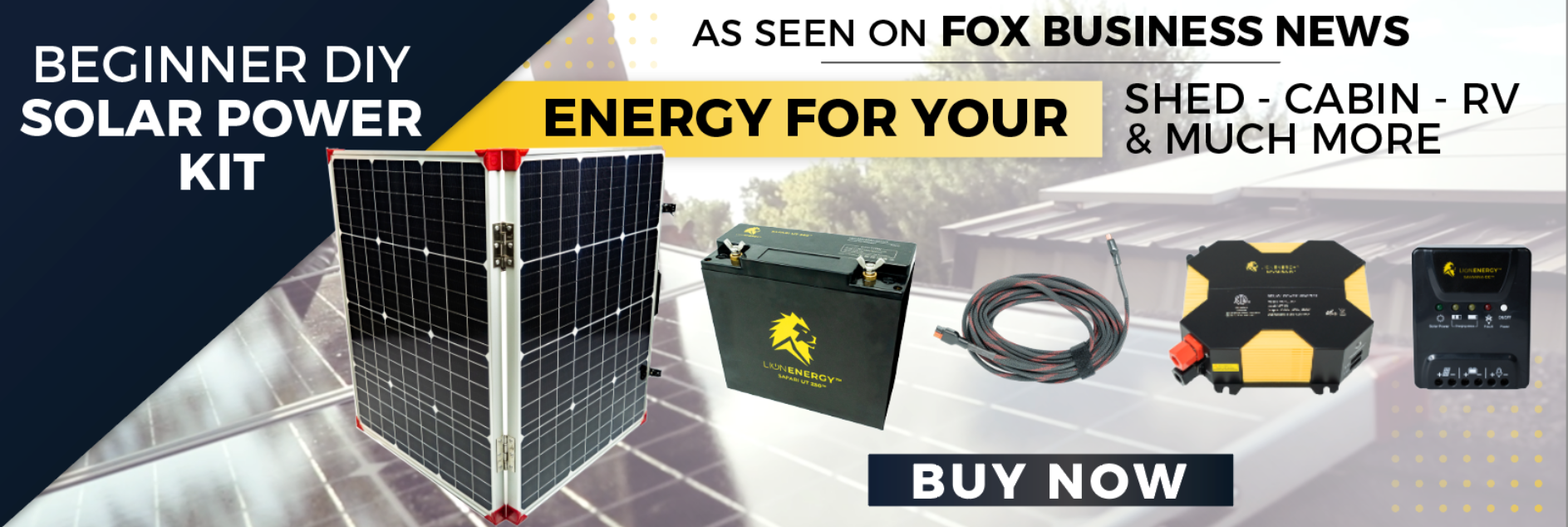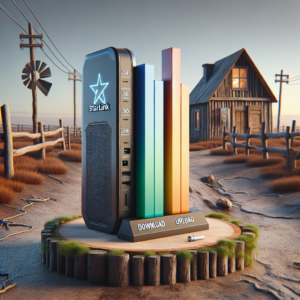
Key Takeaways
-
Solar power backup systems can ensure uninterrupted satellite internet connectivity, especially during power outages.
-
Understanding your energy needs is crucial to determine the size of the solar panels and batteries required.
-
Choosing the right solar panels and batteries for your backup system depends on your specific power requirements.
-
Regular maintenance and monitoring of your solar power backup system are essential for long-term reliability.
-
Investing in solar backup can be cost-effective in the long run, with potential incentives and subsidies available.
Stay Connected: Securing Satellite Internet With Solar Backup
Satellite internet users know that a reliable connection is vital. It’s not just about staying in touch or streaming the latest show; it’s about ensuring that work, education, and even safety aren’t compromised by a power outage. That’s where solar power backup strategies come into play. They’re not just eco-friendly; they’re a lifeline when you need them most. So, let’s dive into how to keep your satellite internet running smoothly, no matter what the weather throws at you.
The Importance of Backup Power for Satellite Internet
Imagine this: a storm hits, and the power grid goes down. Your satellite internet, your link to the outside world, is at risk of going dark. But with a solar power backup system, you can keep your connection alive. Solar backup isn’t just a backup plan; it’s peace of mind. It ensures that your satellite internet remains a reliable resource, enabling you to maintain communication, access information, and stay safe during emergencies.
Solar Power Backup 101: How It Works
Here’s the deal: solar panels soak up sunlight and convert it into electricity. This electricity either powers your devices directly or charges batteries that store energy for later use. When the grid fails, your system automatically switches to battery power, keeping your satellite internet humming without skipping a beat. It’s like having your own personal power station, right on your roof.
Understanding Your Energy Needs
Before you jump into solar, you need to know what you’re dealing with. How much power does your satellite internet setup need? What about other essential devices? It’s not just about keeping the lights on; it’s about understanding the energy demands of your entire home. We’ll break it down, so you know exactly what you need to stay connected.
Calculating Power Requirements for Satellite Internet
Let’s crunch some numbers. Your satellite internet has specific power needs, usually listed on the back of the device. Add up the power consumption of your modem, router, and any other devices you can’t do without. That total is your target for backup power. Remember, it’s better to have a little extra juice than not enough, so don’t cut it too close.
Assessing Solar Panel and Battery Size
Now, match your power needs to the right solar setup. It’s a balancing act between the number of panels and the capacity of your batteries. You want enough panels to charge your batteries, and enough battery storage to keep your satellite internet online through the night or during cloudy days. It’s like packing for a camping trip; bring enough supplies to be self-sufficient, no matter the weather.

Setting Up Your Solar Power Backup System
Getting your solar power backup system up and running is a big step towards energy independence and uninterrupted connectivity. But it’s not just about buying panels and batteries; it’s about installing them correctly to maximize efficiency. This means considering the direction your roof faces, the angle of the solar panels, and ensuring they’re free from shade. It’s like setting up a tent; you need a solid foundation and the right conditions to stay dry and comfortable.
Choosing the Right Solar Panels
When it comes to solar panels, one size does not fit all. You need panels that fit your roof space and generate enough power for your needs. Think about efficiency, durability, and warranty. It’s like picking a car; you want something that’s reliable, gets good mileage, and comes with a solid guarantee. Do your research, compare options, and choose panels that will go the distance.
Selecting Batteries for Energy Storage
Batteries are the heart of your backup system. They store the energy your solar panels generate. There are several types to choose from, like lead-acid, lithium-ion, and saltwater. Each has its pros and cons, so consider things like lifespan, capacity, and maintenance. It’s like choosing a backpack for a long hike; you need something that’ll carry everything you need without weighing you down.
The Installation Process Explained
Installing a solar backup system isn’t a DIY weekend project. It involves electrical work, adhering to building codes, and sometimes, navigating homeowners’ association rules. It’s best to work with a professional who can design and install a system that’s tailored to your needs, ensuring everything is up to code and working perfectly. Think of it as hiring a guide for a mountain trek; you want someone experienced to lead the way.
Ensuring System Reliability and Maintenance
Once your solar power backup system is in place, it’s all about keeping it running smoothly. This means regular check-ups and maintenance. It’s like having a car; you don’t just drive it until it breaks down. You change the oil, check the tires, and keep it clean to ensure it’s always ready to go when you need it.
Best Practices for System Check-ups
Here’s what you need to do to keep your system in top shape: Regularly check your power backup systems to ensure they are functioning properly and are able to sustain your satellite internet during an outage. It’s also wise to review your emergency preparedness plans periodically, as recommended by the FCC.
-
Inspect your solar panels regularly for dirt, debris, or damage. Cleanliness equals efficiency.
-
Check your battery levels and connections. Loose wires or corroded terminals can cause problems.
-
Ensure your backup system’s software is up-to-date. Just like a smartphone, updates can improve performance.
Preventative Maintenance for Longevity
To extend the life of your solar backup system, prevent issues before they start. This means:
-
Having a professional perform an annual inspection. They’ll catch things you might miss.
-
Replacing batteries at the end of their lifespan. Don’t wait for them to fail.
-
Keeping an eye on your system’s performance. If something seems off, get it checked out.
Making the Most of Your Investment
A solar power backup system is an investment in your home and your peace of mind. It’s about more than just keeping the lights on; it’s about adding value to your property and protecting yourself against rising energy costs. But to truly make the most of your investment, you need to understand the financials and the incentives available to you.
Cost-Benefit Analysis of Solar Backup Systems
Let’s talk numbers. Investing in a solar backup system can save you money in the long run. Here’s why:
-
You’ll reduce or eliminate your reliance on the grid, which can lower your electric bills.
-
Solar panels and batteries have long lifespans, meaning your investment will pay off over time.
-
Energy independence means you’re protected from rising energy prices.
Incentives and Subsidies for Going Solar
Did you know there are financial incentives for going solar? Governments and utilities often offer:
-
Tax credits that reduce the cost of your system.
-
Rebates that give you cash back for installing solar panels.
-
Net metering programs that credit you for the excess power you generate.
It’s like getting a discount on a new phone for trading in your old one. Check what’s available in your area and take advantage of these offers to maximize your savings.

Adopting Advanced Solar Backup Technologies
The world of solar power is always advancing, and staying on top of the latest technologies can help you get the most out of your backup system. We’re talking about smarter batteries, more efficient panels, and systems that integrate seamlessly with your home’s energy usage. It’s like upgrading from a flip phone to the latest smartphone; the new tech just makes life easier and more efficient.
Innovations in Solar Power Storage
Modern solar batteries are more compact, efficient, and long-lasting than ever before. Innovations like lithium-ion technology have paved the way for batteries that charge faster, last longer, and take up less space. It’s like the difference between a bulky, old-school TV and a sleek, modern flat-screen. The new models just fit better into your life.
With the right solar power backup strategy, you can ensure that your satellite internet—and your connection to the world—remains strong, no matter what challenges come your way. Remember, it’s not just about preparing for the worst; it’s about embracing a solution that’s good for the planet and good for your peace of mind.
FAQ
How Does Weather Affect Solar Backup Systems?
Weather can be a concern, but solar power backup systems are designed to handle it. On cloudy days, your system will generate less power, but if you’ve sized your battery storage correctly, you’ll have enough reserve power to get through. And don’t forget, solar panels can still collect energy from diffuse sunlight, even when it’s overcast.
Can a Solar Backup System Power my Entire Home?
Yes, a well-designed solar backup system can power your entire home, but it all depends on the size of your system. You’ll need to calculate your home’s energy requirements and ensure your solar array and battery storage can meet those demands. It’s a bigger investment, but for complete energy independence, it’s worth it.
What is the Lifespan of a Solar Backup System?
Solar panels can last 25 years or more, while the lifespan of batteries varies depending on the type. For example, lithium-ion batteries can last 10 years or more. Regular maintenance and careful use can help extend the life of your entire system.
Is Solar Power Backup Cost-Effective in the Long Run?
Investing in a solar backup system can be cost-effective over the long term. While the upfront costs can be significant, you can save on your energy bills every month. Plus, with incentives like tax credits and rebates, the initial cost can be reduced significantly. Over time, your investment pays off, and you’re protected from rising energy prices.
How Can I Monitor the Performance of my Solar Backup?
Many modern solar backup systems include monitoring software that allows you to track your system’s performance via your computer or smartphone. You can see how much energy you’re generating, how much you’re using, and how much is stored. This information helps you manage your system for optimal performance.







